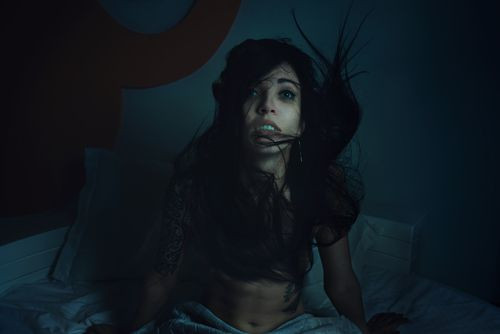Blind People’s Nightmares A Product Of Intense Negative Emotion While Awake

Drifting off to dreamland is supposed to be a tranquil slide into deep sleep. But for people who were born blind, fanciful dreams are often replaced with anxious, panic-stricken nightmares, which, according to a recent study, showcase the everyday fears of living without sight.
As we navigate the social waters of daily life, we’re given a slew of chances to enter into awkward moments, witness cringeworthy conversation, and commit forehead-smacking blunders. Sighted people tend to do a good job avoiding most of these, correcting for missteps by reading people’s body language. But for the blind, science is finding, minor fears aren’t fleeting; they turn into the stuff of nightmares.
“The study confirms an already existing hypothesis that people’s nightmares are associated with emotions they experience while awake,” said Amani Meaidi, a research assistant at the Danish Centre for Sleep Medicine at Glostrup Hospital. “And blind people apparently experience more threatening or dangerous situations during the day than people with normal sight.”
Interacting With Life
Meaidi and a team of sleep scientists wanted to understand what impact blindness might have on the crossover of waking life anxieties to those in slumber. They collected 11 people who were born blind, 14 who had become blind, and 25 people who still retained their sight, and asked them to record their dreams over a period of four weeks. A number of surprising findings emerged.
Congenitally blind people experienced more than four times the number of nightmares than sighted people, with as much as 25 percent of their dreams appearing to the researchers as nightmares. Sighted people and those blinded later in life saw nightmare rates around six and seven percent. And the blinds’ dreams, while lacking visual components, were rich in their other four senses.
What could account for the surge in nightmares? In mining the subjects’ responses, the researchers found certain themes, related to an inability to see, tended to crop up. One woman said she routinely dreamt of getting run over by a car, or spilling a cup of coffee on someone. Another said she had nightly visions of falling to the ground or getting stalked.
These sensations aren’t unique to the blind, but their sameness implies a common thread. In the waking world, experiences that may seem threatening according to other senses, like an angry barking dog, quickly lose their bite when we realize the dog is chained up. In the same way, honking cars and lurking pedestrians suddenly relax into organized traffic and friendly neighbors. Our sight clarifies what our brains belie.
Without this handy mechanism, each tiny fear and worry and moment of panic gets logged for later as a genuine threat. Stored in the brain’s memory bank, the anxieties bubble up as the dreaming brain recalls the day’s emotions. Professor Albert Gjedde, head of the Institute of Neuroscience and Pharmacology at the University of Copenhagen, argues the best evidence suggests we dream to wipe the cognitive slate clean.
“Negative emotions tell us what we should look out for and what we should be aware of to keep ourselves alive,” he said. Blind people may not have any predisposition to nightmares over sighted people; they just happen to have more anxiety and negative experiences built in to their everyday lives.
It's All Relative
But, there was something else that gave researchers pause, which gave the findings some hope. When the congenitally blind learned they had such greater rates of frightening dreams, they reacted with surprise. They didn’t know they had more nightmares than everyone else. What had once seemed like a normal part of the sleeping experience, now seemed like an aberration.
“This isn’t something that causes problems for them in their everyday lives,” Meaidi said. So while the results may fix a problem that doesn’t necessarily exist, they do motivate policies to make the waking world easier to navigate. There are worse things in the world than making several million people a little less anxious.
Source: Meaidi A, Jennum P, Ptito M, Kupers R. The sensory construction of dreams and nightmare frequency in congenitally blind and late blind individuals. Sleep Medicine. 2014.



























